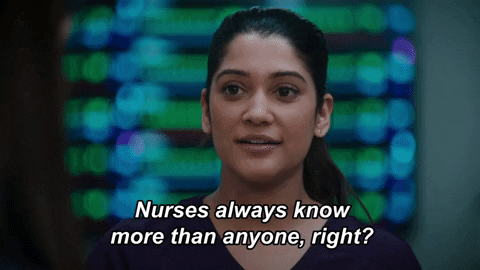- Managed-Well.
- Posts
- 🛒How retail giants are disrupting healthcare
🛒How retail giants are disrupting healthcare

Happy Nurses Week! Here’s to all the heroes in scrubs and the caffeine-fueled miracle workers ❤️

Gif by theresidentonfox on Giphy
What’s in for today:
Retail clinics
Yelp for healthcare?
ACA now offers dental coverage
DISRUPTORS

How retail giants are disrupting healthcare
Retail companies are getting into healthcare in a big way. Walmart, Amazon, and Walgreens all offer a variety of healthcare services, from health clinics to telemedicine. It’s not a new idea, but they’re making a bigger impact than ever before.
An analysis by Bain and Company suggests that by 2030, non-traditional players could acquire about a third (30%) of the primary market worth $260 billion.
Why?
Healthcare costs in the U.S. reached a staggering $4.5 trillion in 2022. Yet, we have one of the lowest life expectancies among wealthy nations.
Rising costs, access issues, and workforce challenges make healthcare ripe for disruption.
Over the last few years, the country's biggest retail giants, including Walmart, Amazon, and Walgreens, have invested billions in the healthcare industry, all with the hope of disrupting the ecosystem. As these companies implement their strategies, they share common goals to improve access to care and reduce costs.
Walmart, for example, promotes convenience for customers by highlighting that 90% of the U.S. population lives within a 10-mile radius of a Walmart Supercenter. By incorporating health centers within their stores, Walmart has the potential to improve access to healthcare in rural areas.
Amazon rolled out Amazon Care, a program for its employees that provides virtual and in-home visits from nurses for testing and vaccinations
Walmart opened its first Health Center in Georgia
Optum started offering virtual care nationwide through Optum Virtual Care
Walgreens became a majority owner of VillageMD with a $5.2 billion investment

Where are we now?
The entry of retail companies into the healthcare industry is expected to bring about changes, but it won’t be without challenges. Some of the biggest hurdles they face include strict government regulations and reimbursement policies. Like traditional healthcare organizations, retail companies also struggle to attract and retain skilled workers.
As a result, several of these companies have either closed or scaled back their healthcare services:
Amazon shuts down Amazon Care
Walgreens will close 60 VillageMD clinics as part of an aggressive $1 billion cost savings
Optum announced that it will close down Optum Virtual Care
Walmart Health announced that it will close all its 51 health clinics and virtual care services

Why should you care?
The healthcare industry has faced its fair share of obstacles, but the future looks bright for those who are driving change! With innovative disruptors shaking up the status quo, we can expect some exciting advancements in the near future.
Apple, for example, has reduced its telehealth services but continues to partner with payers, health systems, and clinical researchers by consolidating health data and promoting innovation in health and fitness. They also support the health ecosystem by providing meaningful data to strengthen the patient-physician relationship.
Amazon: Customers can now use Amazon Pharmacy to order prescription medication online and offer same-day delivery in certain cities like New York and Los Angeles
CVS Health has more than 10,000 retail pharmacies and 1,100 MinuteClinics across the U.S., offering convenient access to healthcare services
Costco members can now access same-day, $29 virtual primary care visits, $79 virtual therapy visits, and weight loss programs.
Even Dollar General has entered the healthcare space
The healthcare industry is no longer just for traditional players! With AI, and changes in consumer behavior, it’s only the beginning of what’s to come. The possibilities are endless, and I can’t wait to see what innovative ideas will surface next!
POLICY BRIEF
🏛️The US Federal Trade Commission launched a new website, HealthyCompetition.gov, and it’s like Yelp for healthcare! Now you can give your doctor a one-star rating for overcharging for a flu shot. Just kidding. But the website does allow individuals to report potentially unfair or anti-competitive practices in healthcare. Who new competition could be so healthy?
🏥The ACA is getting a makeover! New policies were announced aimed at improving the Affordable Care Act Marketplaces. This includes considering how far patients have to travel to see a provider. Finally, no more long road trips just to see a doctor. To make things better, adult dental services are now being made accessible for the first time.
📜 The Centers for Medicare and Medicaid Services (CMS) have just finalized the Interoperability and Prior Authorization Final Rule. What does this mean for you? Well, it means you’ll get faster decisions on your urgent and non-urgent requests. Urgent requests will now be decided within 72 hours, and non-urgent requests within 7 days, cutting current decision times in half for some payers. Click here to learn more about the impacted payers
What do you think about today’s newsletter?
❣️Love it!